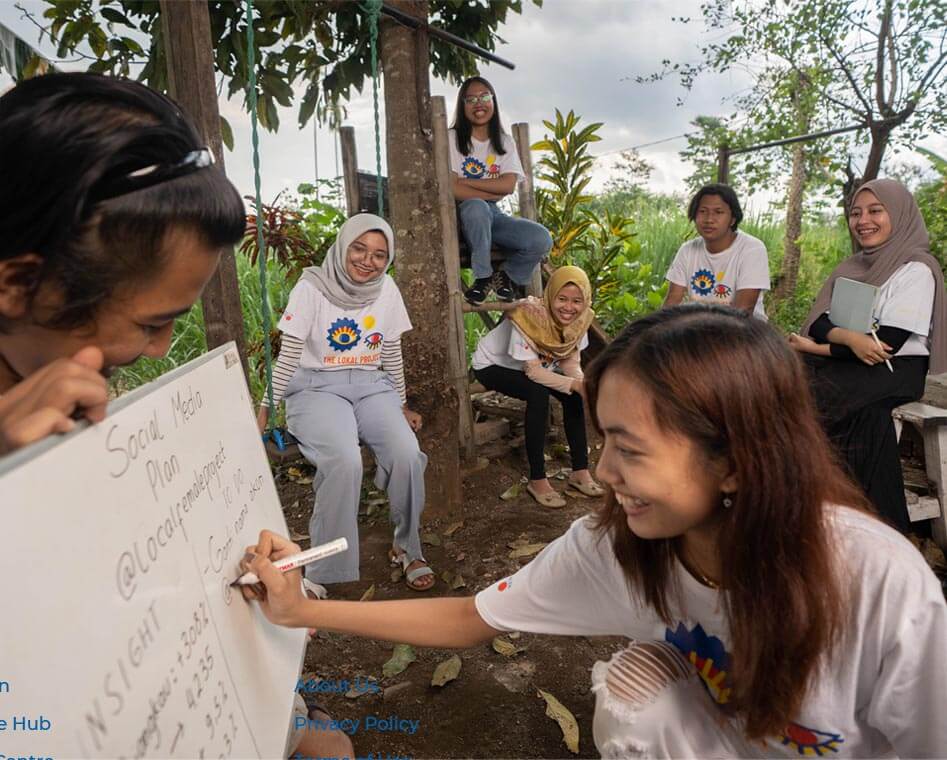How to Tackle On-campus Radicalisation and Improve Community Resilience
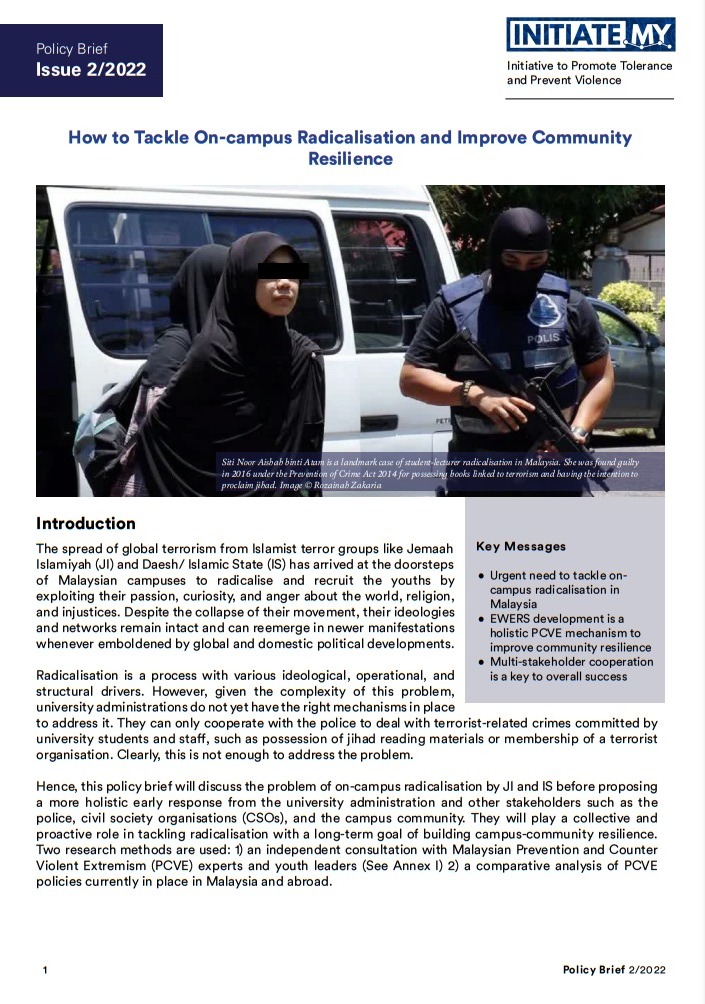
The spread of global terrorism from Islamist terror groups like Jemaah Islamiyah (JI) and Daesh/ Islamic State (IS) has arrived at the doorsteps of Malaysian campuses to radicalise and recruit the youths by exploiting their passion, curiosity, and anger about the world, religion, and injustices. Despite the collapse of their movement, their ideologies and networks […]
National Action Plan on Preventing and Countering Violent Extremism: Civil Society Deserves a Seat at the Table
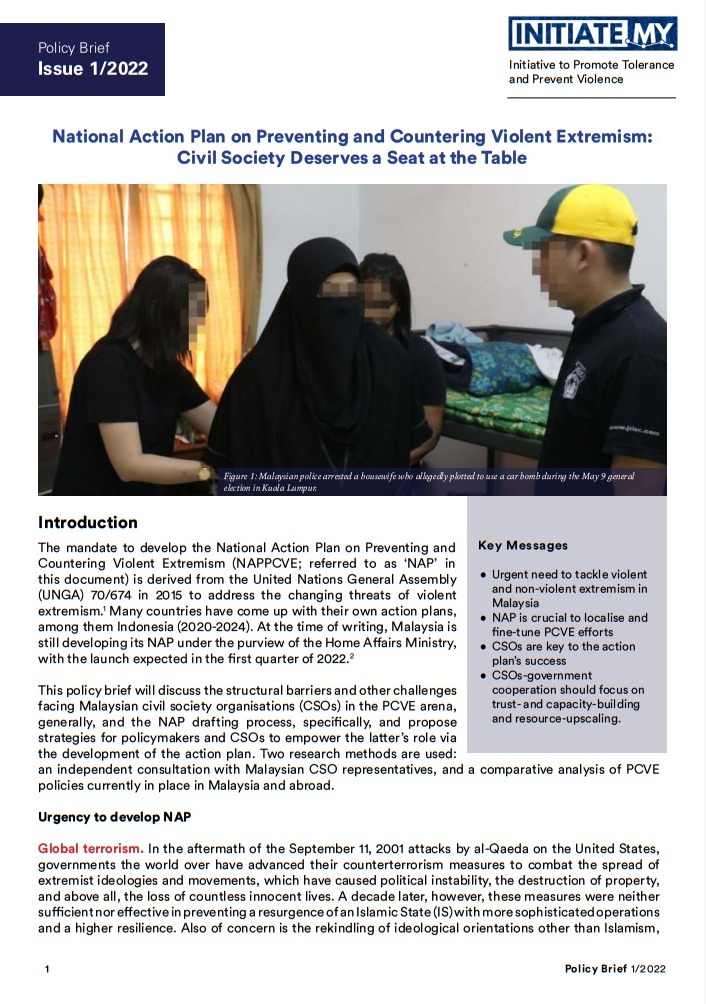
The mandate to develop the National Action Plan on Preventing and Countering Violent Extremism (NAPPCVE; referred to as ‘NAP’ in this document) is derived from the United Nations General Assembly (UNGA) 70/674 in 2015 to address the changing threats of violent extremism. Many countries have come up with their own action plans, among them Indonesia […]
Build Pesantren (Islamic Boarding School) – Based Educational Institutions to Handle Cases of Gender-based Violence

Jombang Regency, East Java is known as the city of santri. However, the number of cases of violence in Jombang Regency has increased, even victims and female companions of victims of violence have to face a system that perpetuates violence where the perpetrators are religious figures or founders of Islamic boarding schools.
National Action Plan on Preventing and Countering Violent Extremism (NAPPCVE): A Brief Report of The Malaysian Civil Society Organisations’ (CSOs) Recommendations
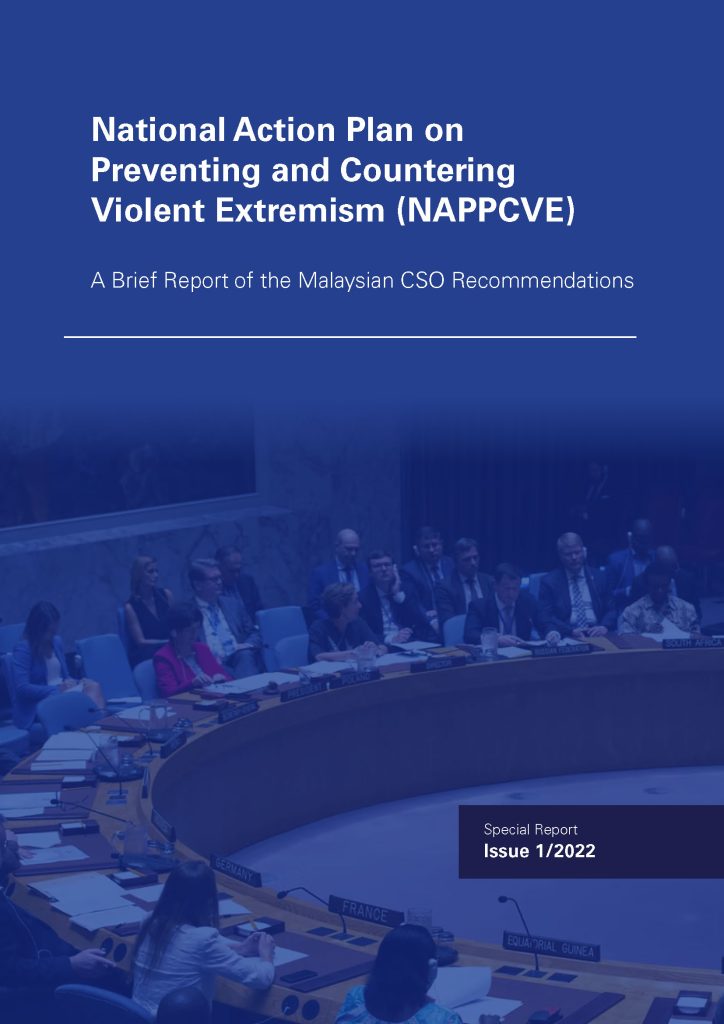
The mandate to develop the National Plan of Action on Prevention and Counter Violent Extremism (NAPPCVE or NAP) is derived from the United Nations General Assembly in 2015 to address the changing threats of violent extremism. At the time of writing, Malaysia is still at the stage of developing the NAP under the purview of […]
Women, Peace and Security in Indonesia
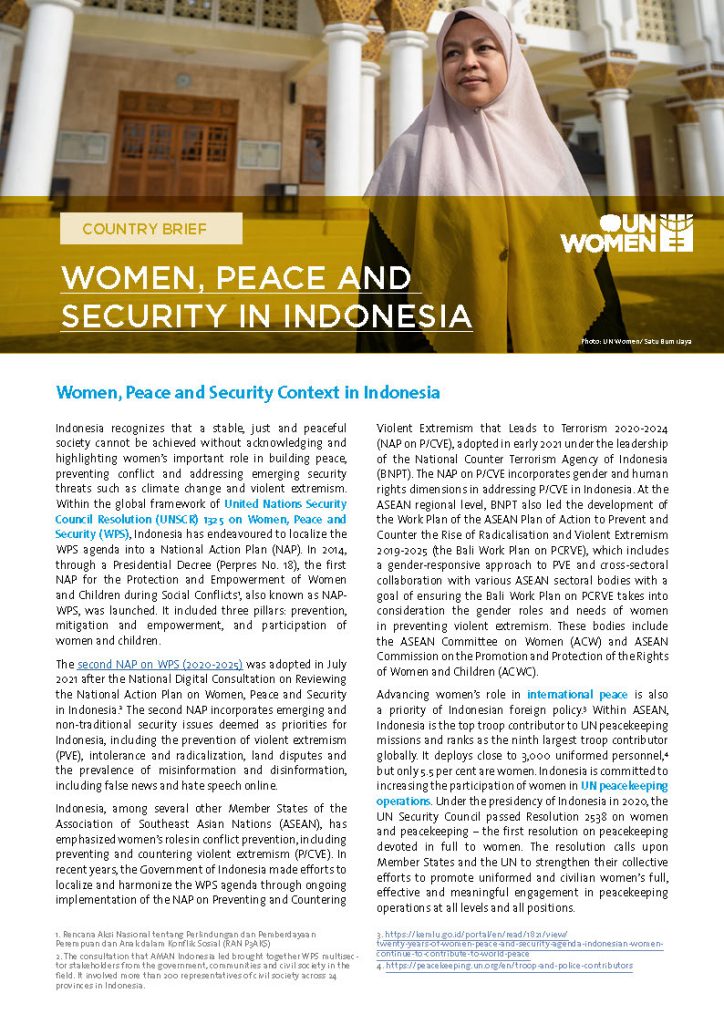
Indonesia recognizes that a stable, just and peaceful society cannot be achieved without acknowledging and highlighting women’s important role in building peace, preventing conflict and addressing emerging security threats such as climate change and violent extremism. Within the global framework of United Nations Security Council Resolution (UNSCR) 1325 on Women, Peace and Security (WPS), Indonesia […]
Women, Peace and Security in Thailand
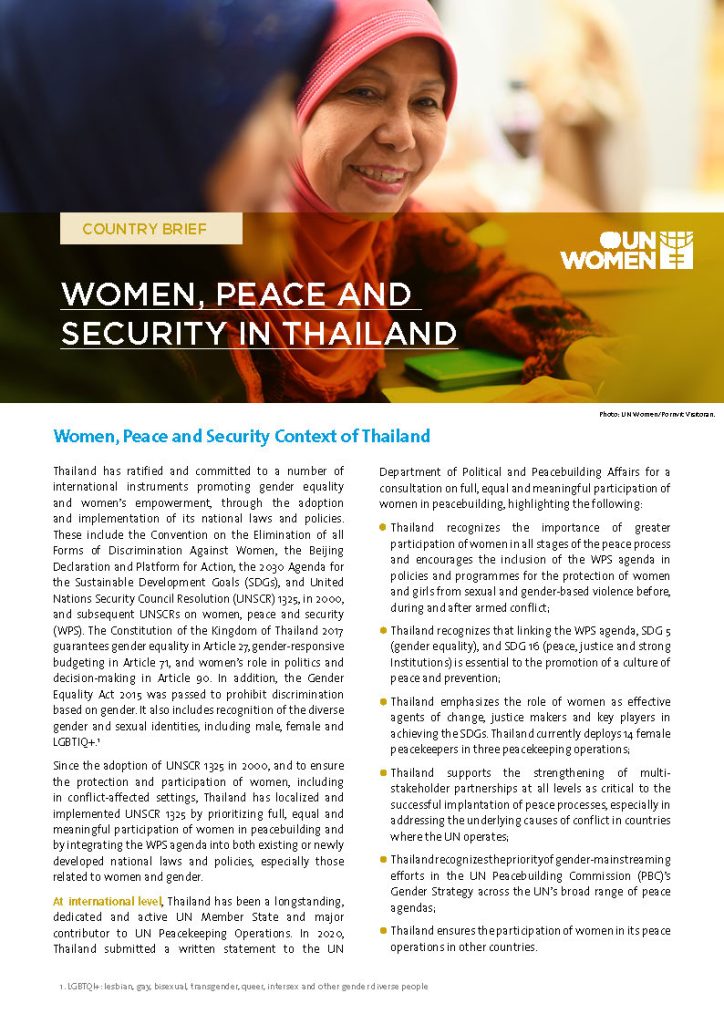
Thailand has ratified and committed to a number of international instruments promoting gender equality and women’s empowerment, through the adoption and implementation of its national laws and policies. These include the Convention on the Elimination of all Forms of Discrimination Against Women, the Beijing Declaration and Platform for Action, the 2030 Agenda for the Sustainable […]
ASEAN Regional Plan of Action on Women, Peace and Security
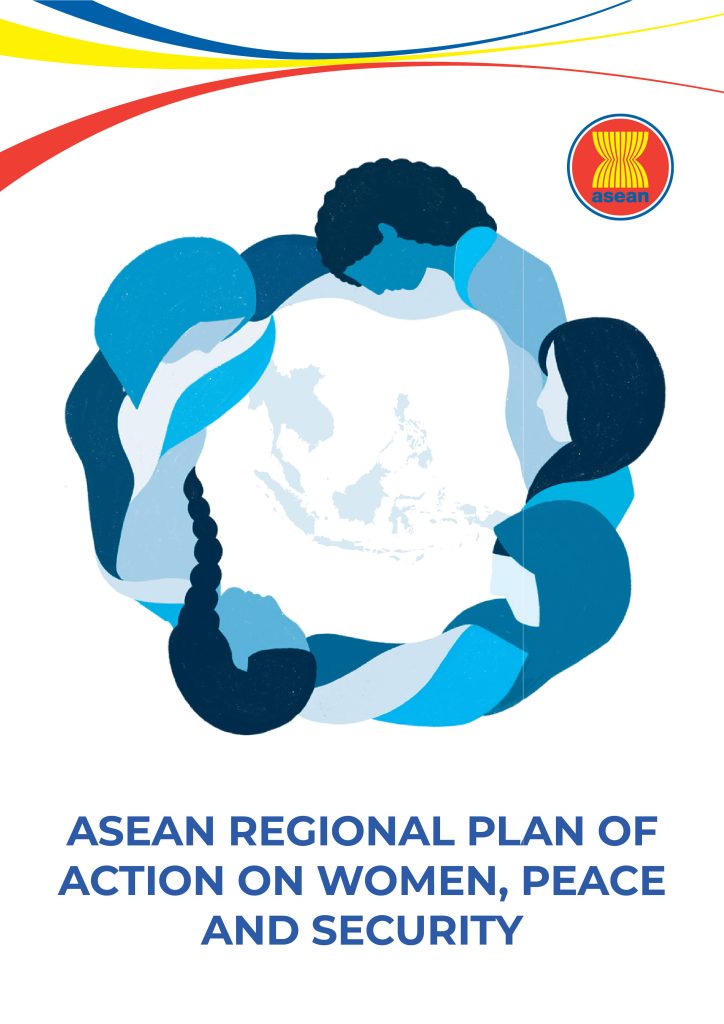
Implementing the Women, Peace and Security (WPS) agenda has long been recognised as essential to achieving sustainable peace and prosperity in the ASEAN region. ASEAN member states remain committed to gender equality and the full protection of women’s rights. They also remain steadfast in their aim to maintain regional peace, address shared security concerns and […]
Annual Report 2021: Empowering Women for Sustainable Peace
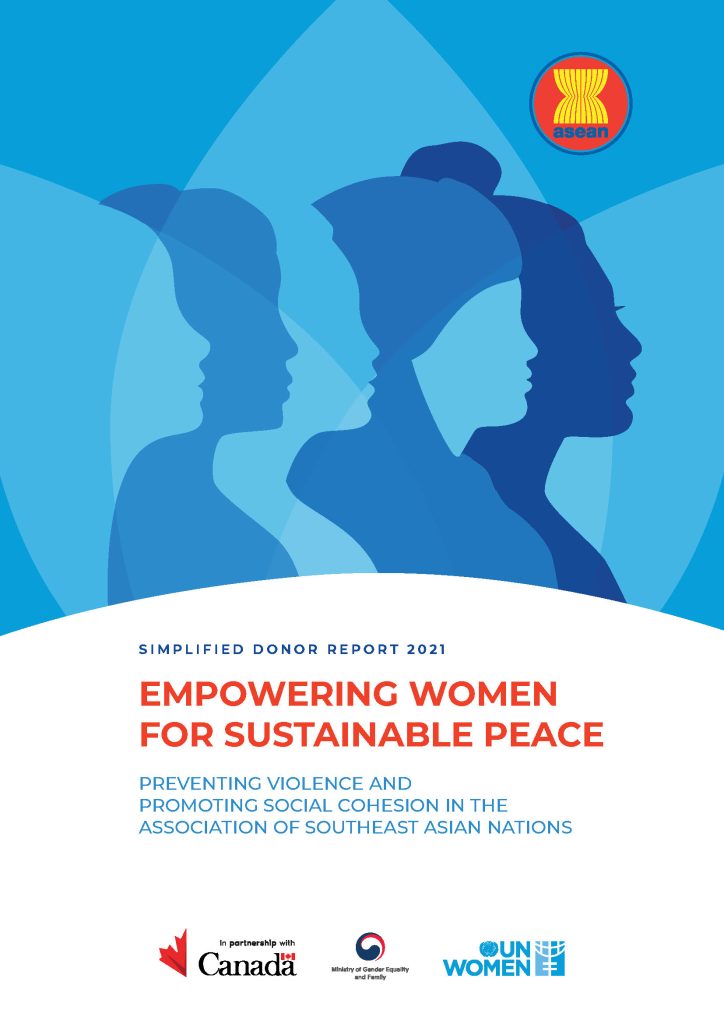
The Project Empowering women for sustainable peace: preventing violence and promoting social cohesion in the ASEAN aims to support ASEAN in advancing the implementation of the WPS agenda, including preventing violence against women and promoting social cohesion in the region. Key results during the Inception phase (January 2021 – October 2021):
Towards Full Implementation of WPS Agenda in Viet Nam
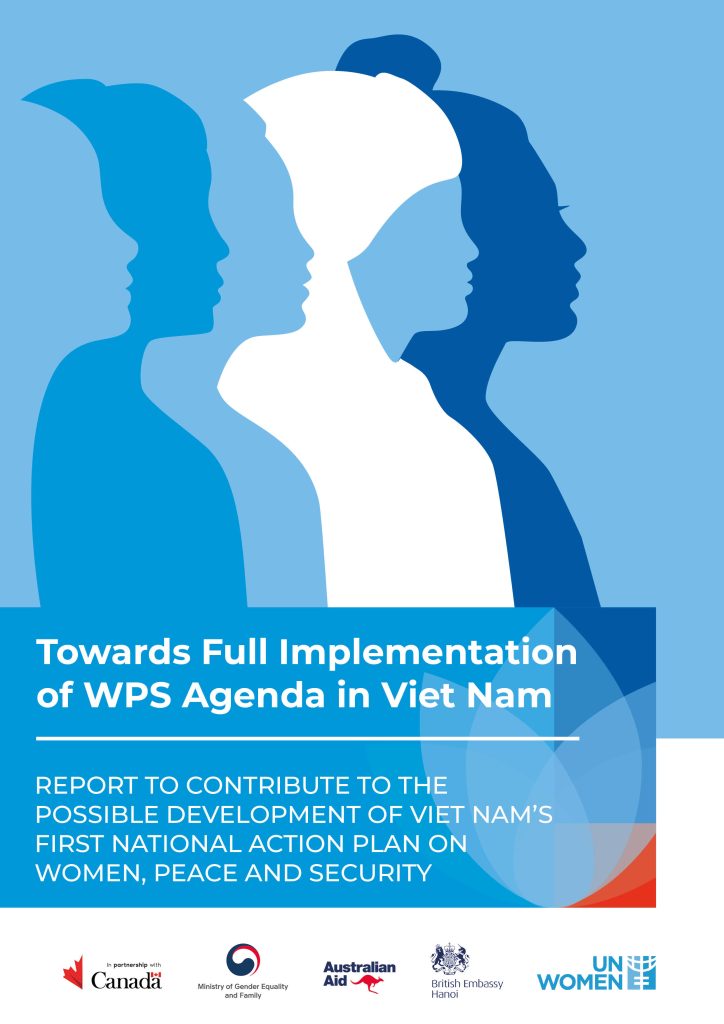
After waves of successful political and economic reforms under Đổi Mới, first launched in 1986, Viet Nam is now considered one of the most dynamic emerging countries in the East Asia region. With its rapid economic development and long-lasting political stability, the country has taken a growing role on the world stage in furthering peace […]

